T.C. İÇİŞLERİ BAKANLIĞI
WEB SİTESİ GİZLİLİK VE ÇEREZ POLİTİKASI
Web sitemizi ziyaret edenlerin kişisel verilerini 6698 sayılı Kişisel Verilerin Korunması Kanunu uyarınca işlemekte ve gizliliğini korumaktayız. Bu Web Sitesi Gizlilik ve Çerez Politikası ile ziyaretçilerin kişisel verilerinin işlenmesi, çerez politikası ve internet sitesi gizlilik ilkeleri belirlenmektedir.
Çerezler (cookies), küçük bilgileri saklayan küçük metin dosyalarıdır. Çerezler, ziyaret ettiğiniz internet siteleri tarafından, tarayıcılar aracılığıyla cihazınıza veya ağ sunucusuna depolanır. İnternet sitesi tarayıcınıza yüklendiğinde çerezler cihazınızda saklanır. Çerezler, internet sitesinin düzgün çalışmasını, daha güvenli hale getirilmesini, daha iyi kullanıcı deneyimi sunmasını sağlar. Oturum ve yerel depolama alanları da çerezlerle aynı amaç için kullanılır. İnternet sitemizde çerez bulunmamakta, oturum ve yerel depolama alanları çalışmaktadır.
Web sitemizin ziyaretçiler tarafından en verimli şekilde faydalanılması için çerezler kullanılmaktadır. Çerezler tercih edilmemesi halinde tarayıcı ayarlarından silinebilir ya da engellenebilir. Ancak bu web sitemizin performansını olumsuz etkileyebilir. Ziyaretçi tarayıcıdan çerez ayarlarını değiştirmediği sürece bu sitede çerez kullanımını kabul ettiği varsayılır.
Web sitemizi ziyaret etmeniz dolayısıyla elde edilen kişisel verileriniz aşağıda sıralanan amaçlarla T.C. İçişleri Bakanlığı tarafından Kanun’un 5. ve 6. maddelerine uygun olarak işlenmektedir:
- T.C. İçişleri Bakanlığı tarafından yürütülen ticari faaliyetlerin yürütülmesi için gerekli çalışmaların yapılması ve buna bağlı iş süreçlerinin gerçekleştirilmesi,
- T.C. İçişleri Bakanlığı tarafından sunulan ürün ve hizmetlerden ilgili kişileri faydalandırmak için gerekli çalışmaların yapılması ve ilgili iş süreçlerinin gerçekleştirilmesi,
- T.C. İçişleri Bakanlığı tarafından sunulan ürün ve hizmetlerin ilgili kişilerin beğeni, kullanım alışkanlıkları ve ihtiyaçlarına göre özelleştirilerek ilgili kişilere önerilmesi ve tanıtılması.
Web sitemizi ziyaret etmeniz dolayısıyla elde edilen kişisel verileriniz, kişisel verilerinizin işlenme amaçları doğrultusunda, iş ortaklarımıza, tedarikçilerimize kanunen yetkili kamu kurumlarına ve özel kişilere Kanun’un 8. ve 9. maddelerinde belirtilen kişisel veri işleme şartları ve amaçları kapsamında aktarılabilmektedir.
Çerezler, ziyaret edilen internet siteleri tarafından tarayıcılar aracılığıyla cihaza veya ağ sunucusuna depolanan küçük metin dosyalarıdır. Web sitemiz ziyaret edildiğinde, kişisel verilerin saklanması için herhangi bir çerez kullanılmamaktadır.
Web sitemiz birinci ve üçüncü taraf çerezleri kullanır. Birinci taraf çerezleri çoğunlukla web sitesinin doğru şekilde çalışması için gereklidir, kişisel verilerinizi tutmazlar. Üçüncü taraf çerezleri, web sitemizin performansını, etkileşimini, güvenliğini, reklamları ve sonucunda daha iyi bir hizmet sunmak için kullanılır. Kullanıcı deneyimi ve web sitemizle gelecekteki etkileşimleri hızlandırmaya yardımcı olur. Bu kapsamda çerezler;
İşlevsel: Bunlar, web sitemizdeki bazı önemli olmayan işlevlere yardımcı olan çerezlerdir. Bu işlevler arasında videolar gibi içerik yerleştirme veya web sitesindeki içerikleri sosyal medya platformlarında paylaşma yer alır.

Teknik olarak web sitemizde kullanılan çerez türleri aşağıdaki tabloda gösterilmektedir.
Web sitemizde çerez kullanılmasının başlıca amaçları aşağıda sıralanmaktadır:
- • İnternet sitesinin işlevselliğini ve performansını arttırmak yoluyla sizlere sunulan hizmetleri geliştirmek,
Farklı tarayıcılar web siteleri tarafından kullanılan çerezleri engellemek ve silmek için farklı yöntemler sunar. Çerezleri engellemek / silmek için tarayıcı ayarları değiştirilmelidir. Tanımlama bilgilerinin nasıl yönetileceği ve silineceği hakkında daha fazla bilgi edinmek için www.allaboutcookies.org adresi ziyaret edilebilir. Ziyaretçi, tarayıcı ayarlarını değiştirerek çerezlere ilişkin tercihlerini kişiselleştirme imkânına sahiptir.
Kanunun ilgili kişinin haklarını düzenleyen 11 inci maddesi kapsamındaki talepleri, Politika’da düzenlendiği şekilde, ayrıntısını Bakanlığımıza ileterek yapabilir. Talebin niteliğine göre en kısa sürede ve en geç otuz gün içinde başvuruları ücretsiz olarak sonuçlandırılır; ancak işlemin ayrıca bir maliyet gerektirmesi halinde Kişisel Verileri Koruma Kurulu tarafından belirlenecek tarifeye göre ücret talep edilebilir.
- Ministry Interior of Turkey
Entry into Turkey
Presidency of Migration Management
- Our Directors
- Central Organisation
- Provincial Organisation
- Organisation Chart
- Institutional Identity
- Privacy, Use and Copyright
- Migration Board
- Legislation
- Migration Projects
- The Budapest Process
- The Prague Process
- The Almaty Process
- The Bali Process
- The Hague Process
- The Rabat Process
- Global Forum on Migration
- Residence Permit
- Visa Information
- Stateless Persons
- Irregular Immigration
- Conditional Refugees
- Subsidiary Protection
- Rights and Obligations
- About Temporary Protection
- General Principle of Temporary Protection
- Temporary Protection in the Law
- Temporary Protection in EU
- Temporary Protection in Turkey
- Mass Influxes
- Voluntary, Safe and Dignified Return
- Combating Human Trafficking
- Harmonization and Communication
- Frequently Asked Question
- Announcements
- Entrance and Exit
- Residence Permits
- Irregular Migration
- International Protection
- Temporary Protection
- Victims Of Human Trafficking
- Contact to Presidency
- Central Organization
- Contact to Provincial Organisation
- Contact to Removal Centres


Karahantepe is located 60 km east of Şanlıurfa. With a history of 12,000 years, Şanlıurfa, believed by some to be the ancient city of Ur Kaśdim (Ur of the Chaldeans), proudly exhibits the legacy of…
Troya RuinsThe oldest settlements in Truva, which has a complex and rich archaeological structure, with 10 different city layers belonging to different periods, dating back to 3,000 BCE. This…
Arslantepe Mound, which was included in the UNESCO World Cultural Heritage List in 2021, is six kilometres away from Malatya city centre. Excavations have been carried out since 1932, Arslantepe was…
PRESS OFFICE
News and announcements, monthly border bulletin (july 2024) is published..

Short Term Rentals Licensed By Ministry of Culture and Tourism

Accommodation Facilities Registered by Ministry of Culture and Tourism
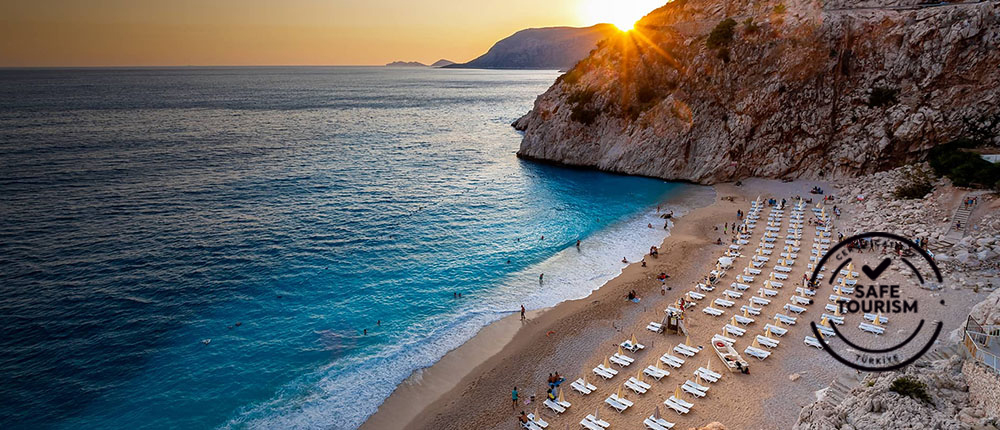
Safe Tourism Certified Accommodation Facilities
This section contains detailed information about our visual and auditory arts and their subsections.

Publications
This section contains publications of Publishing Department of Republic of Türkiye Ministry of Culture and Tourism.

Stolen Works
This section contains detailed information about historical works stolen from Türkiye.
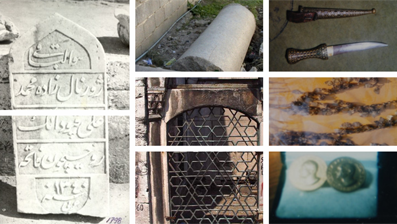
Türkiye on the World Heritage List
Türkiye signed the Convention Concerning the Protection of the World Cultural and Natural Heritage (World Heritage Convention) in 1983 and through the work carried out under the responsibility of the General Directorate for Cultural Heritage and Museums, 10 properties were inscribed on the World Heritage List.
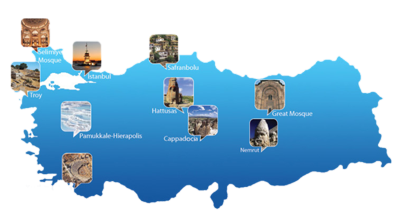
Ancient Items from Asia Minor
This section detailed information about Ancıent Gems And Finger Rings From Asia Minor.
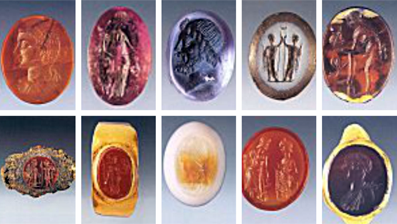
Sparkles From the Deep
The book "Sparkles From the Deep" prepared by Aynur Özet and published by Ministry of Culture, General Directorate of Monuments and Museums has been taken as a reference in the preparation of this section.
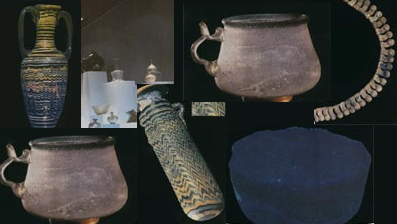
Archaeological Works
This section contains detailed informations about ancient jewellery exhibited, ancient glass of asia minor, Elmalı coins, historical relief maps

- Travel Advisories |
- Contact Us |
- MyTravelGov |
Find U.S. Embassies & Consulates
Travel.state.gov, congressional liaison, special issuance agency, u.s. passports, international travel, intercountry adoption, international parental child abduction, records and authentications, popular links, travel advisories, mytravelgov, stay connected, legal resources, legal information, info for u.s. law enforcement, replace or certify documents.
Share this page:
Turkey Travel Advisory
Travel advisory july 26, 2023, turkey - level 2: exercise increased caution.
Reissued with obsolete COVID-19 page links removed.
Exercise increased caution when traveling to Turkey due to terrorism and arbitrary detentions. Some areas have increased risk. Read the entire Travel Advisory.
Do Not Travel To:
- Sirnak province, Hakkari province, and any area within six miles (10 kilometers) of the Syrian border due to terrorism.
Country Summary: Terrorist groups continue plotting possible attacks in Turkey. Terrorists may attack with little or no warning, targeting tourist locations, transportation hubs, markets/shopping malls, local government facilities, hotels, clubs, restaurants, places of worship, parks, major sporting and cultural events, educational institutions, airports, and other public areas.
Security forces have detained tens of thousands of individuals, including U.S. citizens, for alleged affiliations with terrorist organizations based on scant or secret evidence and grounds that appear to be politically motivated. U.S. citizens have also been subject to travel bans that prevent them from departing Turkey. Participation in demonstrations not explicitly approved by the Government of Turkey, as well as criticism of the government (including on social media), can result in arrest.
Read the country information page for additional information on travel to Turkey.
If you decide to travel to Turkey:
- Stay alert in locations frequented by tourists.
- Avoid demonstrations and crowds.
- Stay at hotels with identifiable security measures.
- Monitor local media and be prepared to adjust your plans quickly.
- Enroll in the Smart Traveler Enrollment Program ( STEP ) to receive travel alerts and make it easier to locate you in an emergency.
- Follow the Department of State on Facebook and Twitter .
- Review the Country Security Report for Turkey.
- Visit the CDC page for the latest Travel Health Information related to your travel.
- Prepare a contingency plan for emergency situations. Review the Traveler’s Checklist .
Sirnak Province, Hakkari Province, and Any Area within six miles (ten kilometers) of the Syrian Border – Level 4: Do Not Travel
Do not travel to Sirnak province, Hakkari province, or any area within six miles (10 kilometers) of the Turkey/Syria border due to the continued threat of attacks by terrorist groups, armed conflict, and civil unrest. Terrorist attacks, including suicide bombings, ambushes, car bomb detonations, and improvised explosive devices, as well as shootings, and illegal roadblocks leading to violence have occurred in these areas. U.S. government employees are subject to travel restrictions in the entire provinces of Sirnak and Hakkari, and any areas within 10 km of the Syrian border.
Visit our website for Travel to High-Risk Areas .
Travel Advisory Levels
Assistance for u.s. citizens, search for travel advisories, external link.
You are about to leave travel.state.gov for an external website that is not maintained by the U.S. Department of State.
Links to external websites are provided as a convenience and should not be construed as an endorsement by the U.S. Department of State of the views or products contained therein. If you wish to remain on travel.state.gov, click the "cancel" message.
You are about to visit:
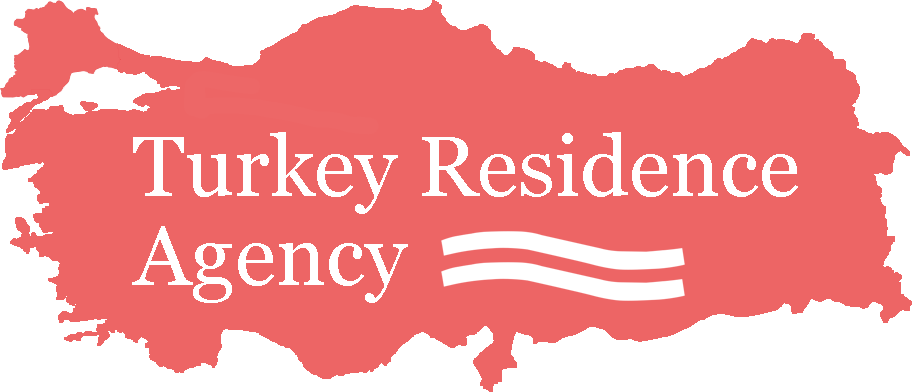
How to Get Turkish E-visa Online for Foreigners | Evisa.gov.tr Website for E-vize in Turkey

How to Pay Visa Overstay Fee in Turkey Airport | Turkish Visa Overstay Fine, Entry Ban, Deport Rules

Long-Term Residence Permit for Foreigners in Turkey | Apply for Turkish Permanent Residence Card
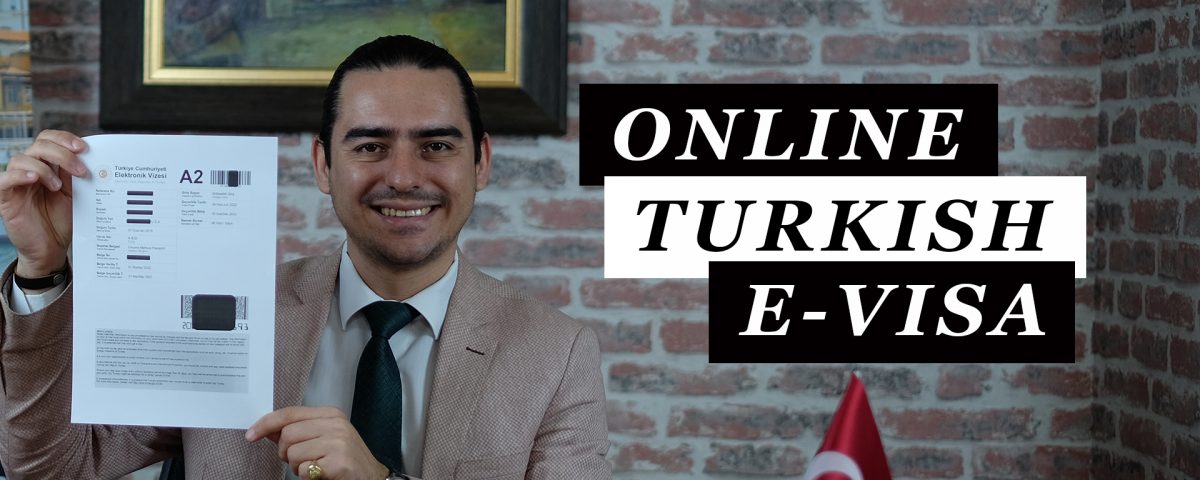
How to Get Turkish E-visa Online for Foreigners
Related posts
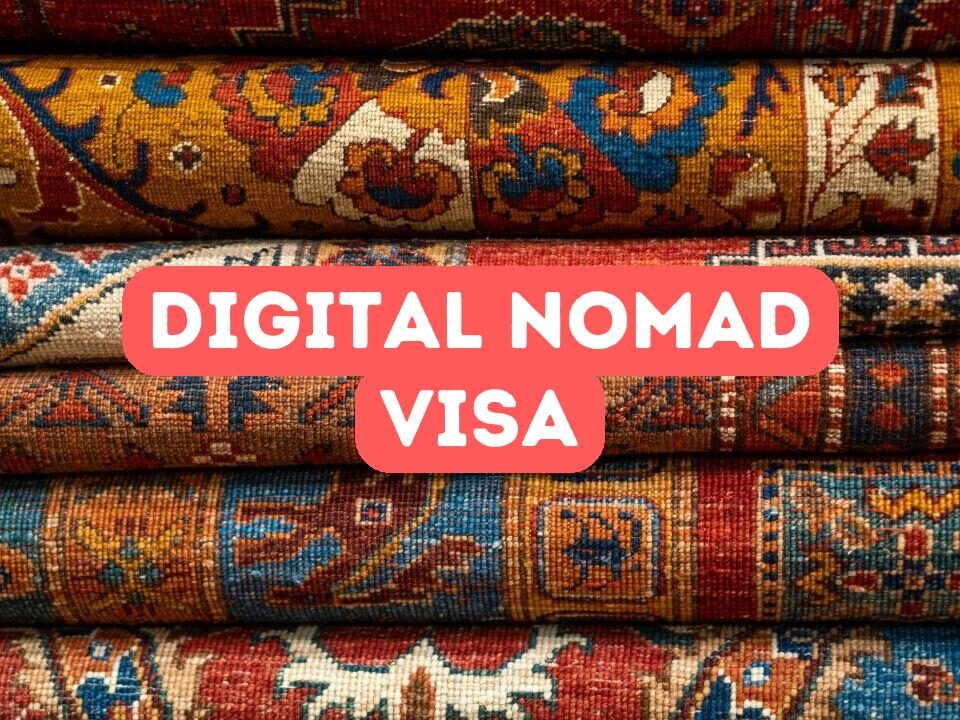
Digital Nomad Visa in Turkey
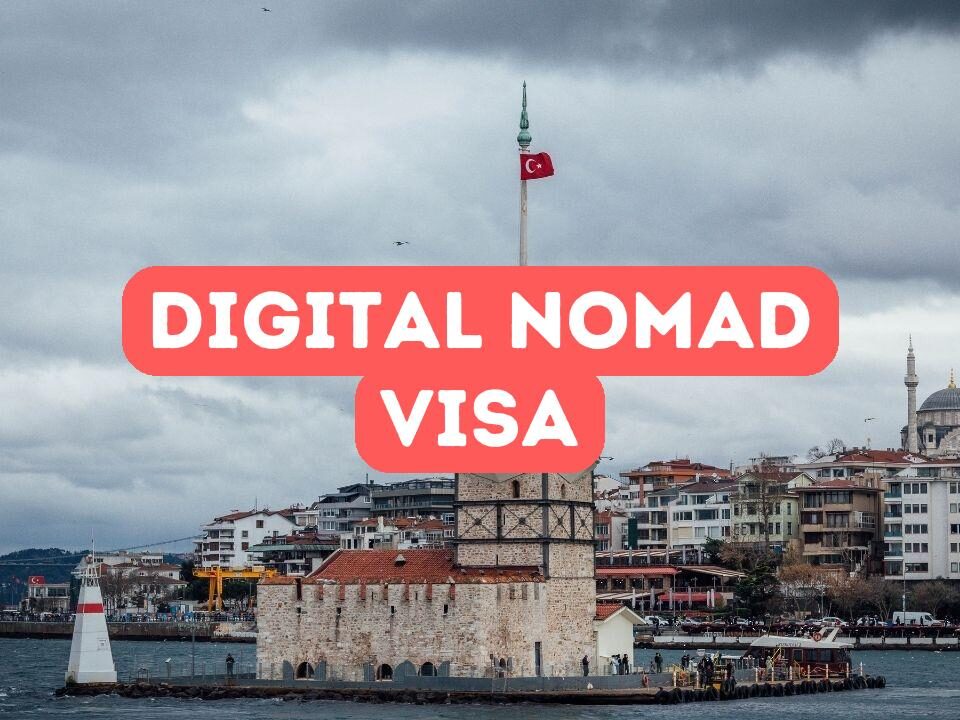
Turkey Digital Nomad Visa
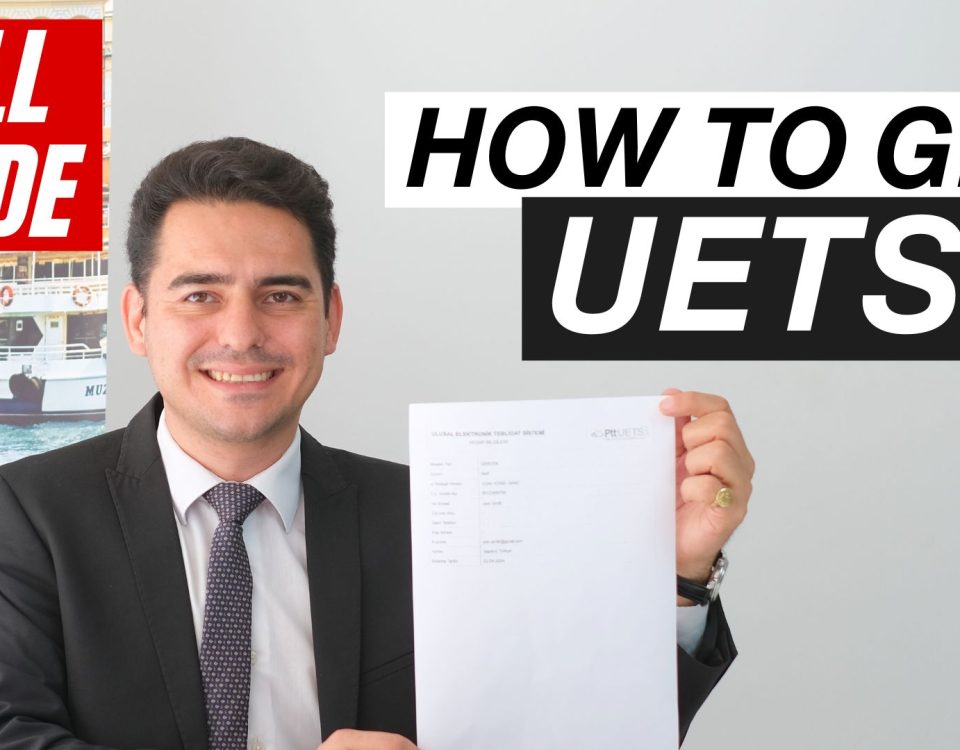
How to Get UETS Form From PTT?

- Entry Regulations
- Covid-19 Rules
- Fly To Antalya
- Antalya Airport
- Alanya Airport
- Public Transport
- Top 10 Sights
- Ancient Ruines
- Attractions
- For Children
- For Foodies
- Paragliding
Turkey’s Entry Regulations and Visas (For Tourists) – 2021
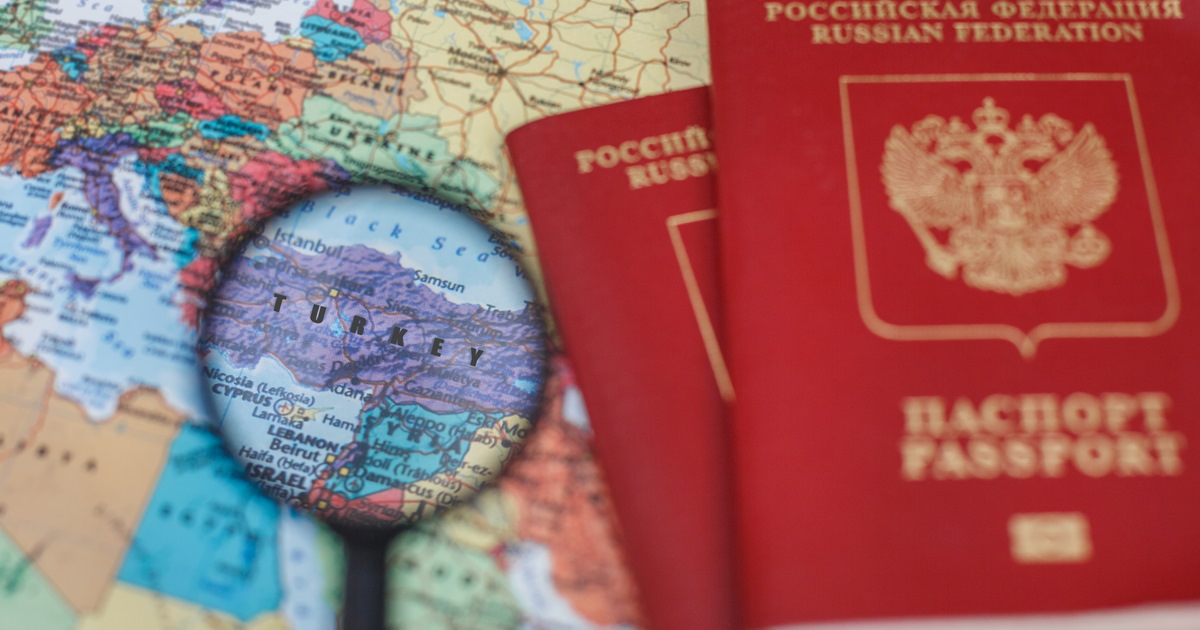
This is our complete guide to Turkey's entry regulations.
Here you will find everything about the necessary documents, visa requirements, and frequently asked questions.
Follow up your reading with our article about the current Covid-19 Rules in Turkey that will help you travel safely and worry-free.
If you have questions about Customs Regulation in Turkey , we have a guide about that, also.
Let´s start with the most important questions.
Table of Content

Do I Need to Buy a Visa?
Step-by-Step guide to find out if you need a visa:
Depending on your your citizenship, you may or may not need to buy a visa for Turkey.
The easiest way to check is to visit the official government e-visa website.
- 1. Select the country/region of your travel document.
- 2. Select your travel document.
- 3. Enter the security verification listed below.
- 4. Click "Select & Continue".
- If you do not need a visa , the following text will appear: " You are exempt from visa" .
- If you do need a visa for entry, you will see how long your visa is valid and the visa fee. Press "Save & Continue" to see in the next step and requirements have to be fulfilled . For example, in some cases you will need a return ticket.
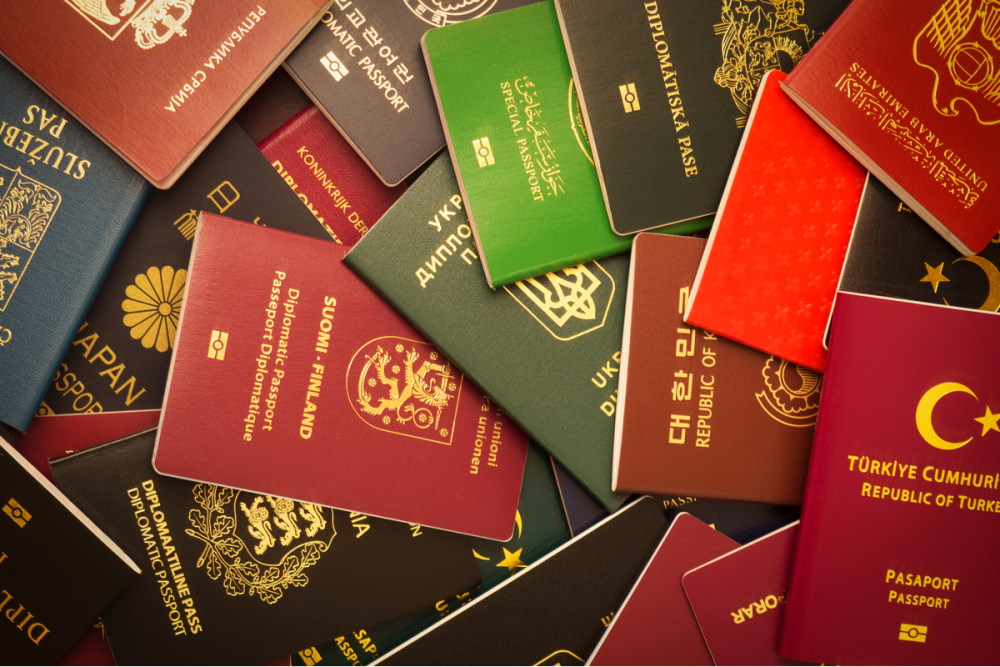
Documents Needed to Enter Turkey
Covid-19 Rules: From June 1, 2021, travelers who will visit Turkey are required to present one of the following documents :
- Proof of vaccination at least 14 days before the date of travel
- Documentation of recovery from COVID-19 in the last 6 months
- A negative rapid antigen test result taken within the last 48 hours before arrival
- A negative PCR test result taken within the last 72 hours before arrival
This applies to all countries except: United Kingdom, Iran, Egypt, Singapore, Afghanistan, Bangladesh, Brazil, South Africa, India, Nepal, Pakistan, Sri Lanka.
- Travelers departing from the United Kingdom, Iran, Egypt, or Singapore will be required to present a negative PCR test result which has to be made max. 72 hours before entry.
- Travelers who depart from or have visited Afghanistan, Bangladesh, Brazil, South Africa, India, Nepal, Pakistan, or Sri Lanka in the last 14 days must provide a negative PCR test taken within the last 72 hours prior to arrival. These travelers are required to quarantine for 14 days at locations designated by the governorships. A PCR test will be conducted at the end of the 14th day of quarantine. If the result is negative, the quarantine is terminated.
Please be advised, that additional to normal entry regulations, travelers have to fill out an entry registration form.
The following documents are required to enter Turkey.
- Valid travel documet (in most cases valid passport, in some cases temporary passport or ID-Card)
- If you are traveling with a child, a valid child passport.
- Depending on your citizenship, a visa or E-visa.
C itizens from 15 countries are allowed to enter Turkey with their national ID-Cards . A couple of these countries include Germany, Ukraine, and the Netherlands. Citizens from other countries must present their passports.
Read more: Official List of Countries that are allowed to enter Turkey with their ID-Card (without Passport).
For most countries, your passport should be valid for at least 6 months from the date of entry into Turkey.
In addition, it should have a full blank page for the entry and exit stamp.
In some cases it is possible to enter Turkey with an expired passport . Note, however, that this is not possible at all border crossings and may cause difficulties especially at land borders.
Here is a list of countries that are allowed to enter Turkey with an expired Passport.

Entry Regulations for Children
Since June 26, 2012, children need their own valid passport to enter Turkey.
Entries on their parents' passports are not valid anymore and will not permit them to travel into Turkey.
Children of nationalities who are allowed to enter with a national ID card can also enter with their ID card.
Important: Children Need Their Own Passport to Enter Turkey!

How Long Can I Stay in Turkey with a Tourist Visa?
The length of time you can stay in Turkey depends on the citizenship on your passport. It can vary between 30 and 90 days .
Citizens from most European countries are able to travel without a visa for visits of up to 90 days within a 180-day period .
This means that a maximum of 180 days is possible in one year.
Note that visa runs are no longer possible to renew your tourist visa. Therefore, leaving Turkey and reentering does not reset the 90 days within the 180 day limit.
Most tourists are granted a "multiple-entry visa", which allows them to enter and leave the country as long as their visa is valid. There are also "single entry visas ", which allow only one entry to the country.
Travelers who want to stay longer than 90 days can apply for a “ Short Term Residence Permi t ” at the Local Immigration Offices (Provincial Directorate of Migration Administration).
Please note, if you stay longer than your tourist visa allows, you risk a fine and deportation .
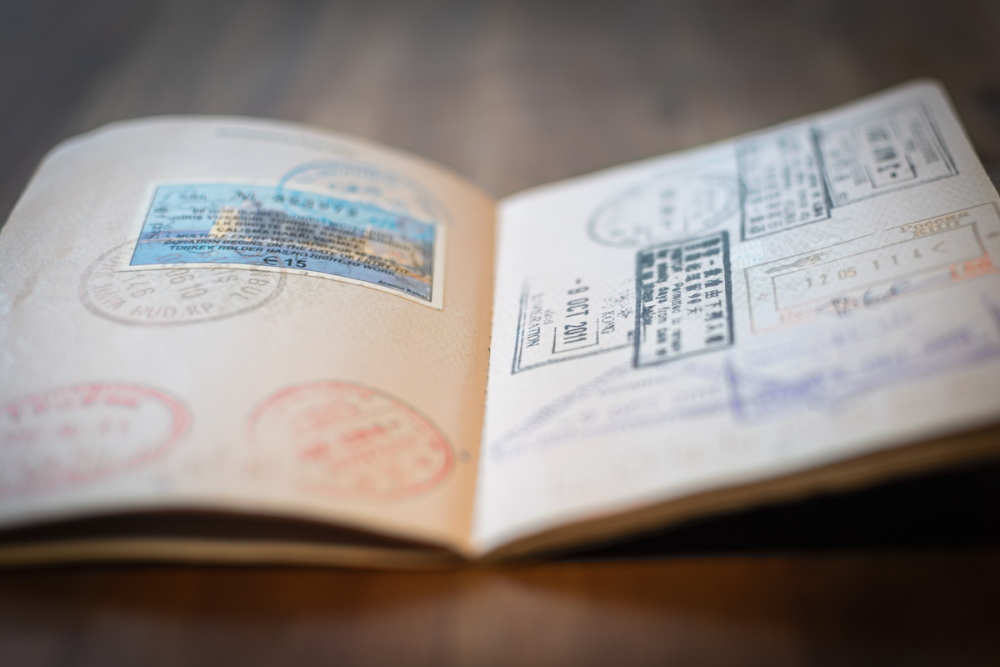
E-Visas, Visas upon Arrival, and Visas from an Embassy
E-visas: .
From most countries, it's possible to easily obtain an e-Visa online. The e-Visa application only takes a few minutes .
After filling out the online form and paying the visa fee, you will receive your visa within 3 days . For urgent applications, you will get an e-mail with your e-Visa in about 14 minutes.
We recommend that you use the official Turkish government site for this purpose. Note that government sites are always recognizable by the suffix ".gov".
See if you are eligible for an E-Visa.
Visa upon arrival:
Some citizens may obtain a visa upon arrival at a Turkish airport . However, tourists who need a visa are strongly advised to apply for an e-visa before their trip, as there are fewer and fewer Turkish airports with visa application centers.
In addition, the fees charged by the official e-Visa website are lower than the fees for visas obtained upon arrival at Turkish airports.
See if you can obtain a visa on arrival.
Turkish Embassy or Consulate:
You can also contact the Turkish Embassy or Consulate in your country to obtain a Turkish visa.
For this type of application, it is best to start applying at least one month before the date of travel and already have all the necessary documents prepared.
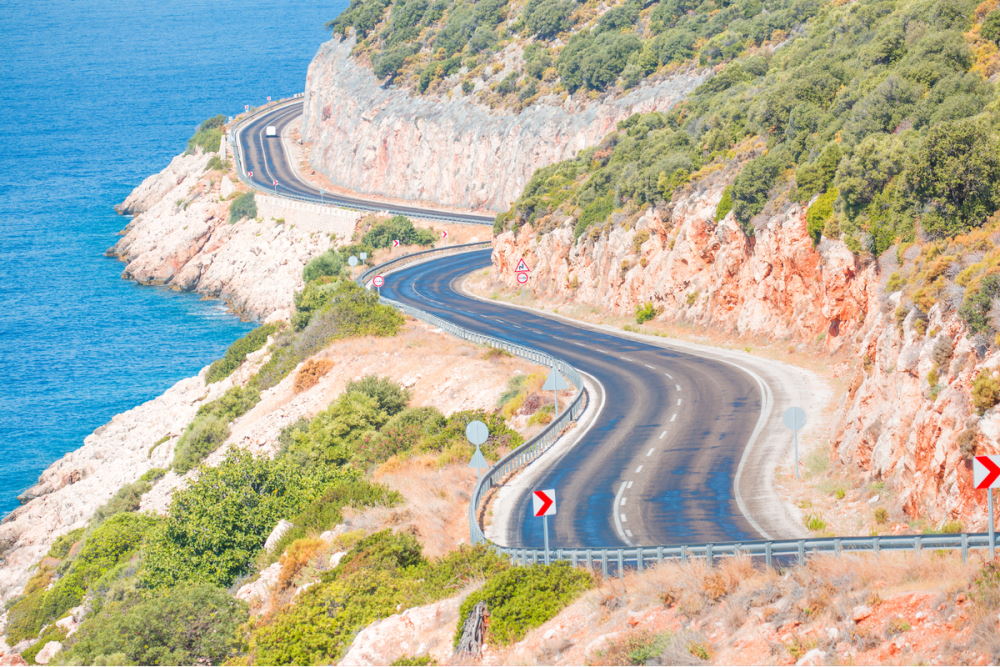
Entering Turkey with a Car
When entering Turkey by car, in addition to the travel documents already mentioned (passport or ID card, visa if necessary), you must also present these documents at the Turkish land border:
- International driving license
- License documents for the vehicle
- International Green Card and insurance to travel on Turkish roads
- Power of attorney (if the vehicle belongs to someone else)
Car Insurance: Please note that the Green Card insurance is usually valid only up to the Bosphorus.
We therefore recommend that you check in advance whether your insurance policy is also valid for the Asian side of the country.
If you need, you can buy valid insurance at border crossings.
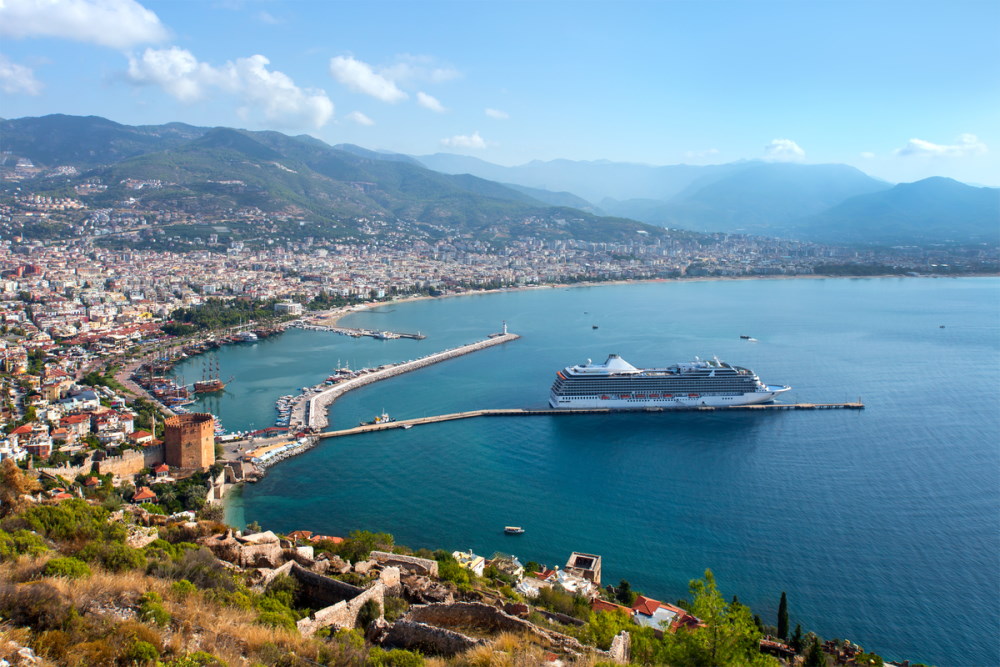
Entering Turkey with a Cruise Ship or Yacht
When entering Turkey by cruise ship, for example in Alanya or Antalya, you do not need to apply for a visa, if you do not stay ashore for more than 72 hours.
We recommend that you ask your tour operator about the necessary documents and current entry requirements.

Health Insurance in Turkey
It's highly recommended to get travel insurance or international health insurance before traveling to Turkey.
In the event you need emergency medical treatment, as a tourist, you are more likely to be admitted to a private clinic due to the higher standards.
However, healthcare insurance does not usually cover the full costs of private clinics. The difference must be paid out of your own pocket.
For this reason, it's a good idea to purchase travel insurance or international health insurance in advance. Travel insurance is available for as little as 10 euros per person.
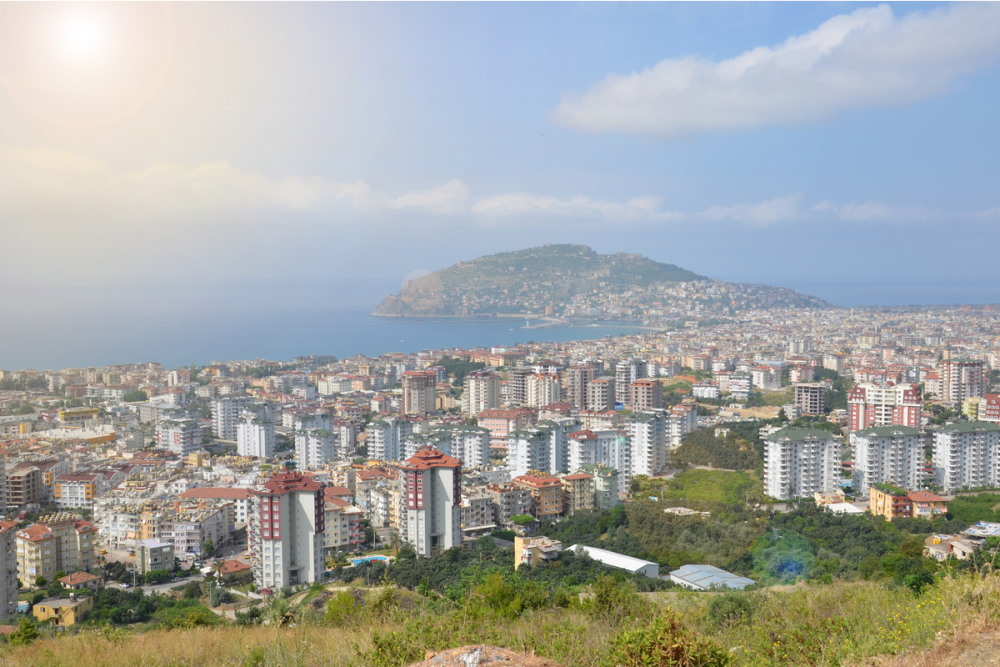
How to Apply for an IKAMET (Long Term Visa)
If you wish to obtain a long-term visa, you must apply for an Ikamet, or “ Short Term Residence Permi t ”.
Your first residence permit can be issued for a maximum of one year on the condition that your passport does not expire earlier.
The application can be made online via the official immigration services website. You will be given an appointment at the immigration office (Directorate of Migration Management), where you will need to submit an application file.
The following documents are required:
- The residence permit application form
- Photocopy of your passport
- Notarized proof of residence (e.g. a rental agreement or a written invitation from a Turkish resident)
- 4 biometric photos
- Valid health insurance
- Bank slip proving your ability to support yourself financially throughout your stay in Turkey
- Application fee payment receipts
Contacts in Turkey
Republic of Turkey Ministry of Foreign Affairs:
- Website: www.mfa.gov.tr/default.en.mfa
- Phone: +90 (312) 292 10 00
- Address: Dr. Sadık Ahmet Cad. No:8 Balgat / Ankara- Turkey 06100
Antalya Provincial Directorate of Migration Management:
- Website: antalya.goc.gov.tr/
- Phone: 0 242 237 95 50-51-52
- E-mail: [email protected]
- Address: Bayındır Mahallesi Gazi Bulvarı No:2 07030 Muratpaşa/Antalya
Alanya District Directorate of Migration Management:
- Phone: (0242) 511 17 51
- E-mail: [email protected]
- Address: Şekerhane Mahallesi Gücüoğlu Sokak No:18, 07400 Alanya/Antalya
Kemer District Directorate of Migration Management :
- Phone: (0242) 814 49 36
- E-mail: [email protected]
- Address: Merkez Mah. Yalı Cad. No: 1 İç Kapı : D-E Kemer Bel. Altı Kemer/Antalya
Manavgat District Directorate of Migration Management :
- Phone: (0242) 742 84 47
- E-mail: [email protected]
- Address: Emek Mah. 3081 sok. İlçe Emniyet Müd. Ek Hizmet Binası No: 6 Manavgat/Antalya
You might also be interested in these articles:
- E-Visa Turkey: How to Apply, Pay, and the Rules
Guide to Customs Regulations in Turkey
Also have look at the links below to plan your trip:
Related Content
June 20, 2021
Turkey’s Entry Regulations and Visas (For Tourists) – 2021
E-visa turkey: how to pay and apply [step-by-step guide], what are safe tourism certified hotels in turkey.
Comment Below
Tailor Made Travel Service
Plan Your Ideal Trip Today
Session expired
Please log in again. The login page will open in a new tab. After logging in you can close it and return to this page.
We’re sorry, this site is currently experiencing technical difficulties. Please try again in a few moments. Exception: request blocked
e-Devlet Kapısı
Obtaining a work permit.
Procedures, required documents and guidelines for foreign nationals in obtaining a work permit to live and work in Türkiye.
OBTAINING A RESIDENCE PERMIT
Procedures, required documents and guidelines for foreign nationals in obtaining a residence permit to live and work in Türkiye.
ACQUIRING PROPERTY AND CITIZENSHIP
Procedures, required documents and guidelines for foreign nationals in acquiring property and citizenship in Türkiye.
Issues Worthy of Notice for Foreigners
In accordance with our internal regulations foreigners have to submit proper and in due form passport or license in order to enter or exit Türkiye at police entry points at the border gates. Foreigners without passports, licenses or invalid travel documents will be sent back.
Punitive action will be taken for those departing Türkiye without passport or proper documents. Upon completion of the punishment these foreigners will be deported and time bound entry restriction will be applied on their behalf.
If the foreigners coming to Türkiye will continue to stay upon expiration of their visas, they have to obtain residency permit by submitting application to related authorities. On the contrary their presence in our country will be illegal and if they are caught during the controls they will be deported, if they are not caught they will be charged with time bound entry restriction during their exit depending on the violation. Moreover they have to pay penalties during the exit for the violation occurred.
Furthermore foreigners living in our country have to carry and submit their passport with valid visa or residence permit when asked in accordance with 5682 numbered Passport law.
Foreigners have to comply with Turkish rules during their stay in Türkiye. Foreigners involved in illegal activities and those who do not comply with the rules will be handled in accordance with 5682-5683 numbered Passport and Residence Law and Foreigners Residence and Travels in Türkiye, upon completion of legal/administrative procedures they will be deported and their entrance to our country will be restricted.
Vehicle Registery Procedures
VEHICLE REGISTERY PROCEDURES VEHICLE REGISTRY IN THE NAME OF FOREIGN NATIONALS
A. DOCUMENTS REQUIRED FOR THE REGISTRATION OF NEW (INVOICED) VEHICLES
1. Invoice or authorization document of the dealer arranging the invoice
2. Certificate of conformity
3. Mandatory Indemnity insurance
4. Original copy of Special Consumption Tax Payment Receipt
5. Citizenship number for foreigners
6. Registration and traffic document (To be obtained from Traffic Registry Branch or Bureau)
7. New registration file to be obtained from Chamber of Drivers
NOTE: It is mandatory to register within 3 months as of the invoice arrangement date.
If the vehicle is purchased on behalf of a company below documents will be provided in addition to the ones given above;
a) Copy of Chamber of Commerce Registration,
b) The list of authorized signatures.
B. DOCUMENTS REQUESTED FROM NEW REGISTRATION VEHICLES (CUSTOMS TRAFFIC CERTIFICATE)
1. Customs traffic certificate
2. Certificate of Conformity
3. Mandatory Indemnity Insurance
4. Original Special Consumption Tax Payment Receipt
NOTE: It is mandatory to register within 3 months as of the certificate arrangement date.
NOTE: Vehicles of Foreign Nationals will be registered in MA-MZ group plates.
DEPARTURE PROCEDURES FOR VEHICLES REGISTERED IN THE NAME OF FOREIGN NATIONALS
1. Process will be carried out for the vehicles in MA-MZ group of plates and vehicles reserved for diplomats and NATO.
2. Vehicle Traffic Registration and Application Procedures Form (Annex-1)
3. Plates of the vehicles
4. Registration and traffic documents of the vehicle
5. Petition
6. Tax clearance certificate from the Tax Office (except for NATO personnel and diplomats)
SECOND HAND VEHICLE PURHASE OF FOREIGN REAL PERSONS AND LEGAL ENTITIES IN TÜRKİYE
1. If a vehicle registered in the name of a foreign real person or legal entity below should be provided;
a) Petition
b) Break off record for tax procedures
c) Registration and traffic documents
d) (D) Temporary Traffic Document and Plates will be granted for a vehicle license plate documents and plates of which are taken back if indemnity insurance which is also valid for overseas is provided.
2. If a second hand vehicle sold to foreign national real persons or real entities through notary public is requested to be departed before it is registered in Türkiye;
b) Notary Public Sale Certificate
c) Registration and traffic documents
e) Break off documents (from the tax office)
f) Indemnity insurance which is valid for overseas
REISSUE OF THE DOCUMENTS (WORN OUT)
1. Worn out registration and traffic documents will be reissued (Traffic Registration Branch or Bureau)
2. 1 ea vehicle Traffic Registration and Application Procedures Form (Annex-1)
3. Petition
4. Examination will be re-conducted if the examination period is over.
5. Application can either be submitted to the registration facility where the vehicle is registered or any registration facility in order to reissue worn out plates and documents.
LOST REGISTRATION OR TRAFFIC DOCUMENT ..."
157 Hotline for Anti-Human Trafficking
157 Hotline for Human Trafficking has been activated in 2005 in order to provide emergency services for foreigners who came to Türkiye for several reasons and whose passports are retained, forced to work on the contrary to their own will, forced to prostitution, who became victims if human trafficking due to organ removal within the scope of 80 th article of Turkish Criminal Law. Hotline offering service for 24/7 in different languages such as Turkish, English, Russian and Romanian is opened up to international calls as 00903121571122.
Social Security
Medical assistance.
Providing Medical Assistance Within the Scope of E-State Social Security Agreements
Our department provides assistance within the scope of our institution only for the citizens of the countries which are parties to the agreement. Services for the citizens of the countries that did not sign the agreements are given by other related department of our institution. Agreements signed with Germany, Austria, Albania, Azerbaijan, Belgium, Bosnia-Herzegovina, Czech Republic, France, Netherlands, TRNC, Macedonia, Luxembourg, and Romania include long term insurance in accordance with health insurance among the social security agreements signed with 22 countries. Since health insurance is not included in the security agreements of the remaining countries such as Denmark, Georgia, England, Switzerland, Sweden, Canada, Quebec, Libya and Norway, citizens of these countries are not within the scope of the duties of our Department.
Foreign nationals obtained medical security from the 13 countries given above within the scope of social security agreements who are in Türkiye for temporary duty, touristic purposes, medical purposes, as the workers of transportation companies, for education purposes and those with permanent residence have to obtain medical benefit certificated from the related institutions on behalf of participating countries determined in accordance with their agreements during their date in Türkiye.
Foreign nationals with medical benefit certificates have to deliver their medical benefit documents to directorates or centers in the list given in the list of Social Security Provincial Directorates to receive medical assistance in accordance with Turkish legislation. When they deliver these formularies they will receive free of charge medical assistance just as our beneficiaries excluding the participation amount.
If they require medical assistance without having their medical benefit document, application should be submitted to the directorates or centers where they reside to provide their certificate through their security institutions.
Insurance holder will pay for the expenses occur until the medical assistance document is provided. If the documents are received before these insurance holders depart from Türkiye, costs incurred will be returned to them in accordance with the legislation. If it is not received in the meantime before they depart Türkiye or they depart Türkiye without submitting application to directorates or centers to receive their medical assistance document, they can ask for reimbursement from their security institution in the home country by submitting receipts and medical documents of the costs incurred.
Academic Personel
Procedures concerning Assignments of Foreign National Academic Personnel in Türkiye in accordance with the law 2547
TO BE EMPLOYED FOR THE FIRST TIME:
- Foreign Academician Information Compilation and ID Form
- Foreign Academician Examination and Evaluation Commission Report
- University Executive Board Decision
- Foreign Academician Information Form
- ID Card Copy
- True Copy of each diploma and Turkish translations
- Visa Request Form
- Passport Copy
TO EXTEND WORK PERMIT
Cookies on GOV.UK
We use some essential cookies to make this website work.
We’d like to set additional cookies to understand how you use GOV.UK, remember your settings and improve government services.
We also use cookies set by other sites to help us deliver content from their services.
You have accepted additional cookies. You can change your cookie settings at any time.
You have rejected additional cookies. You can change your cookie settings at any time.
Warnings and insurance
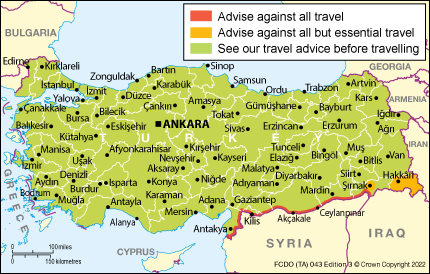
The Foreign, Commonwealth & Development Office ( FCDO ) provides advice about risks of travel to help British nationals make informed decisions. Find out more about FCDO travel advice .
Areas where FCDO advises against travel
Your travel insurance could be invalidated if you travel against FCDO advice. The embassy staff cannot travel to areas where FCDO advises against travel to help you in person. Staff can offer support by phone and email.
Turkey-Syria border
FCDO advises against all travel to within 10km of the border with Syria due to fighting and a heightened risk of terrorism.
Sirnak city
FCDO advises against all but essential travel to Sirnak city.
Hakkari Province
FCDO advises against all but essential travel to Hakkari Province.
Find out more about why FCDO advises against travel .
Before you travel
No travel can be guaranteed safe. Read all the advice in this guide as well as support for British nationals abroad which includes:
- advice on preparing for travel abroad and reducing risks
- information for women, LGBT+ and disabled travellers
Follow and contact FCDO travel on Twitter , Facebook and Instagram . You can also sign up to get email notifications when this advice is updated.

Travel insurance
If you choose to travel, research your destinations and get appropriate travel insurance . Insurance should cover your itinerary, planned activities and expenses in an emergency.
Related content
Is this page useful.
- Yes this page is useful
- No this page is not useful
Help us improve GOV.UK
Don’t include personal or financial information like your National Insurance number or credit card details.
To help us improve GOV.UK, we’d like to know more about your visit today. Please fill in this survey (opens in a new tab) .
- Skip to main content
- Skip to "About this site"
Language selection
Search travel.gc.ca.
Help us to improve our website. Take our survey !
COVID-19: travel health notice for all travellers
Türkiye travel advice
Latest updates: Natural disasters and climate – updated information on wildfires
Last updated: August 21, 2024 13:38 ET
On this page
Safety and security, entry and exit requirements, laws and culture, natural disasters and climate, türkiye - exercise a high degree of caution.
Exercise a high degree of caution in Türkiye due to the threat of terrorist attacks and the possibility of demonstrations throughout the country.
Borders with Iraq and Syria - Avoid all travel
Avoid all travel to within 10 km of the borders with Iraq and Syria, due to the unpredictable security situation and the threat of terrorism.
Earthquake-affected provinces - Avoid non-essential travel
- Kahramanmaraş
Southeastern provinces - Avoid non-essential travel
- Bingöl
Back to top
Protests related to the situation in the Middle East
Since October 2023, protests have been taken place throughout Türkiye due to the ongoing situation in Israel, the West Bank and the Gaza Strip. Some protesters have targeted and vandalized popular Western-branded businesses and foreign diplomatic missions.
Additional protests and demonstrations at various locations cannot be ruled out.
For more information about demonstrations
Borders with Iraq and Syria
Despite counter-terrorism operations conducted by Turkish and Iraqi security forces, a threat of terrorism subsists at the border between Türkiye and Iraq. Violent attacks on sites held by terrorist groups or against Turkish and Iraqi security forces occur frequently.
Extremist groups have carried out attacks at border crossings and other locations in Syria close to the Turkish border. The Turkish government has declared some areas in villages along the border with Syria special security zones as part of cross-border military operations.
Foreigners and individuals associated to Western countries are targets for kidnappings and violence by terrorist groups in border areas with Iraq and Syria.
Border areas with Iraq and Syria are subject to extremely dangerous military activities, such as:
- drone attacks
- heavy gunfire
- improvised explosive devices (IEDs) explosions
If you travel near the border with Iraq and/or Syria despite the advisory in effect:
- exercise extreme caution
- expect a heightened military presence and movement restrictions
- avoid travelling after dark
- monitor local and international media to stay informed on current clashes
- follow instructions from local authorities and security forces
Southeast region
Terrorist groups have launched deadly terrorist attacks against Turkish security personnel in several cities and regions in the south and southeast of the country.
- Remain vigilant
- Follow the instructions of local authorities
- Monitor local and international media
There is a risk, particularly to foreigners, of kidnapping in the area (see Kidnapping, below). Maintain a high level of vigilance at all times.
Avoid overland travel. If you must, drive during the day and stay on major roads. Don’t use public transportation.
There is a threat of terrorism in Türkiye.
There have been armed attacks in crowded places in major cities, such as Ankara and Istanbul. Additional attacks could occur at any time.
Targets could include:
- Turkish military and government facilities
- Schools, including universities
- places of worship
- airports and other transportation hubs and networks
- public areas such as tourist attractions, restaurants, bars, coffee shops, shopping centres, markets, hotels and other sites frequented by foreigners
- public transportation
- cultural venues
Turkish security officials may set up roadblocks or close streets when they receive reports on specific threats. It is common for Turkish police to patrol proactively and conduct routine ID checks.
Be particularly vigilant during:
- sporting events
- cultural events, such as concerts
- religious holidays
- public celebrations
- major political events, such as political rallies for elections
Terrorists may use such occasions to mount attacks.
Mountaineering and hiking
Mount Ararat, between the eastern provinces of Agri and Igdir, is designated a special military zone. You must hire the services of a locally licensed guide agency if you intend to hike in the area. A licensed company will obtain the necessary permits and assign you a registered Mountaineer to accompany you throughout your hike.
If you intend on engaging in mountaineering or hiking:
- never do so alone and always hire an experienced guide from a reputable company
- buy travel insurance that includes helicopter rescue and medical evacuation
- ensure that your physical condition is good enough to meet the challenges of your activity
- ensure that you’re properly equipped and well informed about weather and other conditions that may pose a hazard
- inform a family member or friend of your itinerary, including when you expect to be back to camp
- know the symptoms of acute altitude sickness, which can be fatal
- obtain detailed information on trekking routes or ski slopes before setting out and do not venture off marked trails
Accurate information on mountain conditions can be difficult to obtain. Weather in mountainous areas can also be unpredictable.
Identification
Random ID checks and roadblocks may take place in large cities and on intercity roads.
Cooperate during ID checks and always carry your passport and visa or residence permit. Failure to produce these documents or non-compliance with Turkish officials during identity checks could result in fines, detainment or deportation.
Turkish authorities have detained and prosecuted large numbers of people over social media posts criticizing the government, state officials, president, military operations, etc. You could be subject to scrutiny if you posted similar comments, even if a post was published years ago or outside of Türkiye.
- Keep in mind the sensitivities
- Think twice before posting or reacting to online content criticizing the government
- Restrain and limit your social media footprint
There is a threat of kidnapping-for-ransom along Türkiye’s borders with Syria and Iraq. Extremist groups take advantage of porous borders and an unpredictable security situation to carry out operations and use kidnapping as a means of raising funds.
They may target the local population, foreigners and even foreign aid workers.
Demonstrations
Demonstrations may occur. Even peaceful demonstrations can turn violent at any time. They can also disrupt traffic and public transportation.
- Avoid areas where demonstrations and large gatherings are taking place
- Expect enhanced security measures and an increased police presence
- Monitor local media for information on ongoing demonstrations
- Be prepared to modify your plans in case of disturbances
Mass gatherings (large-scale events)
Petty crime, such as pickpocketing and purse snatching, can occur throughout Türkiye.
- Avoid showing signs of affluence
- Ensure that your belongings, passports and other travel documents are secure at all times
- If travelling by car, keep valuable belongings out of sight, windows closed and doors locked
Muggings, assaults and sexual assaults occur.
Spiked food and drinks
Never leave food or drinks unattended or in the care of strangers. Be wary of accepting snacks, beverages, gum or cigarettes from new acquaintances. These items may contain drugs that could put you at risk of sexual assault and robbery. Do not accept food and drinks from strangers, even if the wrapping or container appears intact.
Don’t go to down-market bars and neighbourhoods. One scam, particularly common in Istanbul, involves locals inviting tourists to bars for food and drinks and then forcing them to pay a steep bill.
Don’t accept letters, parcels or other items from strangers. Drug traffickers sometimes attempt to convince foreigners to deliver packages and messages into and out of Türkiye.
Credit card and ATM fraud occurs. Be cautious when using debit or credit cards:
- pay careful attention when your cards are being handled by others
- use ATMs located in well-lit public areas or inside a bank or business
- avoid using card readers with an irregular or unusual feature
- cover the keypad with one hand when entering your PIN
- check for any unauthorized transactions on your account statements
If you’re travelling to Türkiye to meet someone you’ve only met online, or the person in Türkiye asks to wire money, you may be the victim of a scam. Don’t send money to someone you have never met in person.
Overseas fraud
Women’s safety
There is a risk of sexual assault.
Women travelling alone may be subject to some forms of harassment and verbal abuse. Be aware of your surroundings.
Dress conservatively, especially in areas outside major cities and coastal resorts.
Advice for women travellers
Stray animals
There are numerous stray dogs and cats in Türkiye. Dogs often travel in packs and could attack pedestrians and joggers.
Don’t attempt to feed or pet stray animals.
Road safety
Türkiye has a modern road network. However, uneven surfaces and poorly marked lane changes near construction zones, are common.
Exercise caution, especially when driving in the rain. Severe weather conditions may seriously affect road conditions.
Ensure that your vehicle is in good repair. Avoid driving after dark outside of major cities or major roads.
Accidents are common. You may face the following hazards when driving in the country:
- reckless driving
- vehicle breakdown due to poor maintenance practices
- dangerous road conditions
- inadequate lighting
- poor signage
- high-volume traffic congestion
If you come across an accident, don’t slow down or stop to observe.
If you are involved in an accident, lock your doors and windows and call 112 to notify the police.
Don’t move your vehicle until advised to do so by the police, even if your accident results in:
- blocked traffic routes
- injuries to those involved
- a disagreement
- a crowd starting to form
You may be permitted to move your vehicle after communicating with the police if you are on a busy road, once you have taken pictures of the scene.
Although pedestrians officially have the right of way, it may not be the case in practice.
General Directorate of Highways
We do not make assessments on the compliance of foreign domestic airlines with international safety standards.
Information about foreign domestic airlines
Every country or territory decides who can enter or exit through its borders. The Government of Canada cannot intervene on your behalf if you do not meet your destination’s entry or exit requirements.
We have obtained the information on this page from Turkish authorities. It can, however, change at any time.
Verify this information with the Foreign Representatives in Canada .
Entry requirements vary depending on the type of passport you use for travel.
Before you travel, check with your transportation company about passport requirements. Its rules on passport validity may be more stringent than the country’s entry rules.
Regular Canadian passport
Your passport must be valid for at least 60 days beyond the duration of stay indicated on your visa, e-Visa, visa exemption or residence permit.
Passport for official travel
Different entry rules may apply.
Official travel
Passport with “X” gender identifier
While the Government of Canada issues passports with an “X” gender identifier, it cannot guarantee your entry or transit through other countries. You might face entry restrictions in countries that do not recognize the “X” gender identifier. Before you leave, check with the closest foreign representative for your destination.
Other travel documents
Different entry rules may apply when travelling with a temporary passport or an emergency travel document. Before you leave, check with the closest foreign representative for your destination.
Useful links
- Foreign Representatives in Canada
- Canadian passports
Work visa: required Tourism visa: not required for stays of up to 90 days in a 180-day period Business visa: required Student visa: required Medical visa: required
If you are travelling to Türkiye to seek medical services, apply for a medical visa through the HealthTürkiye online portal. You should also consult our advice on medical tourism under the Health section before applying for a medical visa.
If you are travelling to Türkiye and need a visa, use the official Turkish government site to apply online and purchase an e-visa before entering the country. Be cautious of third-party websites that offer help in getting any type of visa, as they may charge additional fees to provide information and submit applications for you. They do not operate on behalf of the Government of Türkiye.
If you plan to study or work in Türkiye, you must obtain a visa at a Turkish embassy or consulate before arriving in Türkiye. If you intend to work remotely from Türkiye, you must first obtain a ‘’Digital Nomad’’ visa by submitting the requested documentation on the government of Türkiye’s digital nomads online portal. If your documents are validated, you will receive a Digital Nomad Identification Certificate that you must present at a Turkish embassy, consulate or visa center to receive your visa.
To qualify for a subsequent visa-exempted entry for a 90-day period in Turkiye, you must leave the country for at least 90 days before being allowed to re-enter for another 90 days.
If you wish to remain in Türkiye for longer than 90 consecutive days, you must obtain a residence permit from the Provincial Directorate of Migration Management in the province in which you reside. If you overstay, you might be fined, deported or banned from future travel to Türkiye for a specific period of time.
- E-visa application system – Ministry of Foreign Affairs of the Republic of Türkiye
- Residency permit applications – Ministry of Interior of the Republic of Türkiye
- HealthTürkiye online portal – Ministry of Health of the Republic of Türkiye
- Digital nomads online portal – Ministry of Culture and Tourism of the Republic of Türkiye
Entry stamp
Ensure Turkish immigration officials stamp your passport on arrival. Failure to produce a stamped passport is punishable by a fine, detention and deportation, and can lead to significant delays at departure.
Dual citizenship
Dual Turkish-Canadian citizens must present a valid Turkish passport or piece of identification to enter the country.
- Children and travel
Learn more about travelling with children .
Yellow fever
Learn about potential entry requirements related to yellow fever (vaccines section).
Relevant Travel Health Notices
- Global Measles Notice - 13 March, 2024
- COVID-19 and International Travel - 13 March, 2024
This section contains information on possible health risks and restrictions regularly found or ongoing in the destination. Follow this advice to lower your risk of becoming ill while travelling. Not all risks are listed below.
Consult a health care professional or visit a travel health clinic preferably 6 weeks before you travel to get personalized health advice and recommendations.
Routine vaccines
Be sure that your routine vaccinations , as per your province or territory , are up-to-date before travelling, regardless of your destination.
Some of these vaccinations include measles-mumps-rubella (MMR), diphtheria, tetanus, pertussis, polio, varicella (chickenpox), influenza and others.
Pre-travel vaccines and medications
You may be at risk for preventable diseases while travelling in this destination. Talk to a travel health professional about which medications or vaccines may be right for you, based on your destination and itinerary.
Yellow fever is a disease caused by a flavivirus from the bite of an infected mosquito.
Travellers get vaccinated either because it is required to enter a country or because it is recommended for their protection.
- There is no risk of yellow fever in this country.
Country Entry Requirement*
- Proof of vaccination is not required to enter this country.
Recommendation
- Vaccination is not recommended.
* It is important to note that country entry requirements may not reflect your risk of yellow fever at your destination. It is recommended that you contact the nearest diplomatic or consular office of the destination(s) you will be visiting to verify any additional entry requirements.
About Yellow Fever
Yellow Fever Vaccination Centres in Canada
There is a risk of hepatitis A in this destination. It is a disease of the liver. People can get hepatitis A if they ingest contaminated food or water, eat foods prepared by an infectious person, or if they have close physical contact (such as oral-anal sex) with an infectious person, although casual contact among people does not spread the virus.
Practise safe food and water precautions and wash your hands often. Vaccination is recommended for all travellers to areas where hepatitis A is present.
Tick-borne encephalitis (TBE) is a risk in some areas of this destination. It is a viral disease that affects the central nervous system (brain and spinal cord). It is spread to humans by the bite of infected ticks or occasionally when unpasteurized milk products are consumed.
Travellers to areas where TBE is found may be at higher risk during April to November, and the risk is highest for people who hike or camp in forested areas.
Protect yourself from tick bites . The vaccine is not available in Canada. It may be available in the destination you are travelling to.
Measles is a highly contagious viral disease. It can spread quickly from person to person by direct contact and through droplets in the air.
Anyone who is not protected against measles is at risk of being infected with it when travelling internationally.
Regardless of where you are going, talk to a health care professional before travelling to make sure you are fully protected against measles.
Hepatitis B is a risk in every destination. It is a viral liver disease that is easily transmitted from one person to another through exposure to blood and body fluids containing the hepatitis B virus. Travellers who may be exposed to blood or other bodily fluids (e.g., through sexual contact, medical treatment, sharing needles, tattooing, acupuncture or occupational exposure) are at higher risk of getting hepatitis B.
Hepatitis B vaccination is recommended for all travellers. Prevent hepatitis B infection by practicing safe sex, only using new and sterile drug equipment, and only getting tattoos and piercings in settings that follow public health regulations and standards.
Coronavirus disease (COVID-19) is an infectious viral disease. It can spread from person to person by direct contact and through droplets in the air.
It is recommended that all eligible travellers complete a COVID-19 vaccine series along with any additional recommended doses in Canada before travelling. Evidence shows that vaccines are very effective at preventing severe illness, hospitalization and death from COVID-19. While vaccination provides better protection against serious illness, you may still be at risk of infection from the virus that causes COVID-19. Anyone who has not completed a vaccine series is at increased risk of being infected with the virus that causes COVID-19 and is at greater risk for severe disease when travelling internationally.
Before travelling, verify your destination’s COVID-19 vaccination entry/exit requirements. Regardless of where you are going, talk to a health care professional before travelling to make sure you are adequately protected against COVID-19.
The best way to protect yourself from seasonal influenza (flu) is to get vaccinated every year. Get the flu shot at least 2 weeks before travelling.
The flu occurs worldwide.
- In the Northern Hemisphere, the flu season usually runs from November to April.
- In the Southern Hemisphere, the flu season usually runs between April and October.
- In the tropics, there is flu activity year round.
The flu vaccine available in one hemisphere may only offer partial protection against the flu in the other hemisphere.
The flu virus spreads from person to person when they cough or sneeze or by touching objects and surfaces that have been contaminated with the virus. Clean your hands often and wear a mask if you have a fever or respiratory symptoms.
In this destination, rabies is commonly carried by dogs and some wildlife, including bats. Rabies is a deadly disease that spreads to humans primarily through bites or scratches from an infected animal. While travelling, take precautions , including keeping your distance from animals (including free-roaming dogs), and closely supervising children.
If you are bitten or scratched by a dog or other animal while travelling, immediately wash the wound with soap and clean water and see a health care professional. In this destination, rabies treatment may be limited or may not be available, therefore you may need to return to Canada for treatment.
Before travel, discuss rabies vaccination with a health care professional. It may be recommended for travellers who are at high risk of exposure (e.g., occupational risk such as veterinarians and wildlife workers, children, adventure travellers and spelunkers, and others in close contact with animals).
Safe food and water precautions
Many illnesses can be caused by eating food or drinking beverages contaminated by bacteria, parasites, toxins, or viruses, or by swimming or bathing in contaminated water.
- Learn more about food and water precautions to take to avoid getting sick by visiting our eat and drink safely abroad page. Remember: Boil it, cook it, peel it, or leave it!
- Avoid getting water into your eyes, mouth or nose when swimming or participating in activities in freshwater (streams, canals, lakes), particularly after flooding or heavy rain. Water may look clean but could still be polluted or contaminated.
- Avoid inhaling or swallowing water while bathing, showering, or swimming in pools or hot tubs.
Travellers' diarrhea is the most common illness affecting travellers. It is spread from eating or drinking contaminated food or water.
Risk of developing travellers' diarrhea increases when travelling in regions with poor standards of hygiene and sanitation. Practise safe food and water precautions.
The most important treatment for travellers' diarrhea is rehydration (drinking lots of fluids). Carry oral rehydration salts when travelling.
Typhoid is a bacterial infection spread by contaminated food or water. Risk is higher among children, travellers going to rural areas, travellers visiting friends and relatives or those travelling for a long period of time.
Travellers visiting regions with a risk of typhoid, especially those exposed to places with poor sanitation, should speak to a health care professional about vaccination.
Insect bite prevention
Many diseases are spread by the bites of infected insects such as mosquitoes, ticks, fleas or flies. When travelling to areas where infected insects may be present:
- Use insect repellent (bug spray) on exposed skin
- Cover up with light-coloured, loose clothes made of tightly woven materials such as nylon or polyester
- Minimize exposure to insects
- Use mosquito netting when sleeping outdoors or in buildings that are not fully enclosed
To learn more about how you can reduce your risk of infection and disease caused by bites, both at home and abroad, visit our insect bite prevention page.
Find out what types of insects are present where you’re travelling, when they’re most active, and the symptoms of the diseases they spread.
Crimean-Congo haemorrhagic fever is a viral disease that can cause fever, pain and bleeding under the skin. In some cases, it can be fatal. It spreads to humans through contact with infected animal blood or tissues, or from the bite of an infected tick. Risk is generally low for most travellers. Celebrations which include the slaughtering of animals and contact with their blood and/ or tissues may increase the risk of exposure to the virus.
Protect yourself from tick bites and wear gloves or other protective clothing if you are in contact with the blood and tissues of animals, particularly livestock. There is no vaccine available for Crimean-Congo haemorrhagic fever.
Animal precautions
Some infections, such as rabies and influenza, can be shared between humans and animals. Certain types of activities may increase your chance of contact with animals, such as travelling in rural or forested areas, camping, hiking, and visiting wet markets (places where live animals are slaughtered and sold) or caves.
Travellers are cautioned to avoid contact with animals, including dogs, livestock (pigs, cows), monkeys, snakes, rodents, birds, and bats, and to avoid eating undercooked wild game.
Closely supervise children, as they are more likely to come in contact with animals.
Human cases of avian influenza have been reported in this destination. Avian influenza is a viral infection that can spread quickly and easily among birds and in rare cases it can infect mammals, including people. The risk is low for most travellers.
Avoid contact with birds, including wild, farm, and backyard birds (alive or dead) and surfaces that may have bird droppings on them. Ensure all poultry dishes, including eggs and wild game, are properly cooked.
Travellers with a higher risk of exposure include those:
- visiting live bird/animal markets or poultry farms
- working with poultry (such as chickens, turkeys, domestic ducks)
- hunting, de-feathering, field dressing and butchering wild birds and wild mammals
- working with wild birds for activities such as research, conservation, or rehabilitation
- working with wild mammals, especially those that eat wild birds (e.g., foxes)
All eligible people are encouraged to get the seasonal influenza shot, which will protect them against human influenza viruses. While the seasonal influenza shot does not prevent infection with avian influenza, it can reduce the chance of getting sick with human and avian influenza viruses at the same time.
Person-to-person infections
Stay home if you’re sick and practise proper cough and sneeze etiquette , which includes coughing or sneezing into a tissue or the bend of your arm, not your hand. Reduce your risk of colds, the flu and other illnesses by:
- washing your hands often
- avoiding or limiting the amount of time spent in closed spaces, crowded places, or at large-scale events (concerts, sporting events, rallies)
- avoiding close physical contact with people who may be showing symptoms of illness
Sexually transmitted infections (STIs) , HIV , and mpox are spread through blood and bodily fluids; use condoms, practise safe sex, and limit your number of sexual partners. Check with your local public health authority pre-travel to determine your eligibility for mpox vaccine.
Medical tourism
Medical tourism is common in Türkiye. Canadian travellers have had serious health complications following surgeries abroad. The Turkish government recommends that all travellers seeking medical services select healthcare providers authorized by the Turkish Ministry of Health.
Before leaving for medical travel, you should do your research, especially on:
- the health and financial risks
- medical facilities performing the intended procedure
- language barriers, which can lead to misunderstandings about your medical care and conditions
- travel insurance that includes coverage for the type of medical procedure you will be undergoing
The Turkish authorities established the HealthTürkiye online portal, which provides information to foreigners about medical tourism in Türkiye.
You should discuss your medical plans with your primary healthcare provider in Canada before travelling.
- Make sure that the healthcare providers you choose are authorized by the Turkish health authorities.
- Ask to see the credentials of the healthcare providers
- Obtain a written agreement detailing the proposed treatment or procedure.
- Receiving medical care outside Canada
- If you become sick or injured while travelling outside Canada or after your return
- Authorized healthcare providers - Ministry of Health of the Republic of Türkiye (In Turkish)
- International Health Services Call Center - Ministry of Health of the Republic of Türkiye
- HealthTürkiye – Ministry of Health of the Republic of Türkiye
Universal health coverage
Foreigners with residency permits must register for universal health coverage under Turkish Social Security (SGK). Although Canadian citizens are exempt, you may enroll if you have no other coverage and you have been a resident in Türkiye for at least one year.
Universal Health Insurance - Türkiye's social Security Institution
Medical services and facilities
Modern medical care is available in major cities but may not be in remote areas. Immediate cash payment is often required.
Most provincial and territorial health care programs are extremely limited in the coverage offered abroad.
Make sure you get travel insurance that includes coverage for medical evacuation and hospital stays.
Health and safety outside Canada
Keep in Mind...
The decision to travel is the sole responsibility of the traveller. The traveller is also responsible for his or her own personal safety.
Be prepared. Do not expect medical services to be the same as in Canada. Pack a travel health kit , especially if you will be travelling away from major city centres.
You must abide by local laws.
Learn about what you should do and how we can help if you are arrested or detained abroad .
Authorities can request to see your ID at any time. If you fail to present valid identification documents upon request, you could face:
- deportation
- entry ban for future travel into Türkiye
During your stay:
- carry the original version (not only photocopies or digital versions) of a valid government-issued ID, such as your passport, at all times.
- keep a digital copy of your ID and travel documents in case it is seized or lost
- follow the instructions of the local authorities requesting the documents
If you are temporarily in Türkiye, you should carry a valid passport that contains a Turkish entry stamp and a valid visa.
If you reside in Türkiye, you should carry your Turkish resident ID (Kimlik and/or Ikamet) and a valid passport that contains a Turkish entry stamp and a valid visa.
The use of illegal drugs is prohibited. Penalties for possession, use or trafficking of illegal drugs are severe. Convicted offenders can expect lengthy jail sentences and heavy fines.
Don't agree to carry any baggage that is not yours.
Drugs, alcohol and travel
Lèse-majesté
It is illegal to denigrate, desecrate or insult the following:
- the name or image of Mustafa Kemal Atatürk, the founder of the Republic of Türkiye
- the president of the Republic of Türkiye
- the Turkish flag and the national anthem
- Turkish currency
- State organs and institutions and its judicial bodies
- the police and the military
Religious proselytism
Although religious proselytism is not illegal, some activities may be considered illegal and could lead to detention.
Political discussions
Avoid discussions (including on social media) on historical and religious issues as well as on politics.
- Restrain/limit your social media footprint.
Online activities
Turkish authorities have detained and prosecuted people over social media posts criticizing the government, state officials, president, military operations. You could be subject to scrutiny even if a post was published years ago or outside of Türkiye.
Authorities have also targeted people and groups for:
- publishing statements
- organizing news conferences
- organizing or participating in nonviolent activities
- critical writing and online activism protesting the government, its policies, decisions and actions
Even if a case does not go to trial or ends in acquittal, people can be labelled as terrorism suspects and face adverse consequences due to investigations and criminal proceedings, including possible loss of employment and social exclusion.
Photography
It is forbidden to photograph military or public installations. Avoid photographing public demonstrations or members of police or security forces. Cameras may be confiscated. Do not photograph people without their permission.
Turkish antiquities and other cultural artifacts that are considered of historical value or of national importance cannot be exported. Seek advice from Turkish authorities prior to departure from Türkiye. If the item can be exported, you will require a sales receipt and the official museum export certificate issued by the Turkish customs office.
2SLGBTQI+ persons
Turkish law does not prohibit sexual acts between individuals of the same sex. However, homosexuality is not widely socially accepted.
Travel and your sexual orientation, gender identity, gender expression and sex characteristics
Dual citizenship is legally recognized in Türkiye.
If you are a Canadian citizen, but also a citizen of Türkiye, our ability to offer you consular services may be limited while you're there. You may also be subject to different entry/exit requirements .
Dual citizens
International Child Abduction
The Hague Convention on the Civil Aspects of International Child Abduction is an international treaty. It can help parents with the return of children who have been removed to or retained in certain countries in violation of custody rights. The convention applies between Canada and Türkiye.
If your child was wrongfully taken to, or is being held in Türkiye, and if the applicable conditions are met, you may apply for the return of your child to the Turkish court.
If you are in this situation:
- act as quickly as you can
- contact the Central Authority for your province or territory of residence for information on starting an application under The Hague Convention
- consult a lawyer in Canada and in Türkiye to explore all the legal options for the return of your child
- report the situation to the nearest Canadian government office abroad or to the Vulnerable Children's Consular Unit at Global Affairs Canada by calling the Emergency Watch and Response Centre
If your child was removed from a country other than Canada, consult a lawyer to determine if The Hague Convention applies.
Be aware that Canadian consular officials cannot interfere in private legal matters or in another country's judicial affairs.
- List of Canadian Central Authorities for the Hague Convention
- International Child Abductions: A guide for affected parents
- The Hague Convention – Hague Conference on Private International Law
- Canadian embassies and consulates by destination
- Request emergency assistance
You should carry an international driving permit.
International Driving Permit
Dress and behaviour
Islamic practices and beliefs are closely adhered to in many parts of the country.
In all places of worship, women should cover their head with a scarf and all visitors should cover their arms and legs.
- Dress conservatively, especially in areas outside major cities and coastal resorts
- Behave discreetly
- Respect religious and social traditions to avoid offending local sensitivities
In 2025, the lunar month of Ramadan is expected to begin on or around February 28.
In public, between sunrise and sunset, be discreet when:
The currency of Türkiye is the Turkish lira (TRY).
Earthquakes
In February 2023, severe earthquakes struck several provinces in southeastern Türkiye resulting in tens of thousands of casualties and significant damage to critical infrastructure, buildings and private houses. There are reports indicating that most of the affected local populations live in temporary shelters or settlements awaiting reconstruction.
The authorities revoked the state of emergency on May 9, 2023. Recovery work is underway, but the situation remains precarious in the following southern provinces affected by the earthquakes:
If you are in the affected area, you can expect:
- continued telecommunication and electricity disruptions
- frequent aftershocks
- limited food, water and hygiene options
- limited accommodations
- extremely limited transportation options from the disaster area
If you are planning to travel near an affected area despite this advisory:
- monitor local media for the latest developments
- follow the instructions of local authorities
Avoid non-essential travel to the provinces affected by the earthquakes as our ability to provide consular assistance to Canadians in that area is severely limited. If you need assistance, call the Embassy of Canada in Ankara: 90 (312) 409-2700.
Türkiye is located in an active seismic zone. Landslides are possible in affected areas, and strong aftershocks may occur after the initial earthquake.
Earthquakes - What to Do?
Severe rainstorms occur in various regions around Türkiye, especially in the Black Sea region and coastal areas. Heavy rainfall can cause severe flooding and landslides, resulting in extensive damage to infrastructure and hampering the provision of essential services in the affected areas. Roads may become impassable and bridges damaged.
Droughts and snowstorms can also delay travel and disrupt essential services.
Forest fires often occur during the summer months, particularly in provinces on the Mediterranean and Aegean coasts of Türkiye.
Heavy smoke and ash fall may deteriorate the air quality in areas near active fires. They can also lead to road and air traffic disruptions and power outages.
In case of major fire:
- stay away from the affected areas, especially if you suffer from respiratory ailments
- follow the instructions of local authorities, including evacuation orders
- monitor local media for up-to-date information on the situation
Local services
Dial 112 for emergency assistance.
Consular assistance
Azerbaijan, Georgia. Offering consular services to Canadians in Iran.
For emergency consular assistance, call the Embassy of Canada to Türkiye, in Ankara, or the Consulate General of Canada to Türkiye, in Istanbul, and follow the instructions. At any time, you may also contact the Emergency Watch and Response Centre in Ottawa.
The decision to travel is your choice and you are responsible for your personal safety abroad. We take the safety and security of Canadians abroad very seriously and provide credible and timely information in our Travel Advice to enable you to make well-informed decisions regarding your travel abroad.
The content on this page is provided for information only. While we make every effort to give you correct information, it is provided on an "as is" basis without warranty of any kind, expressed or implied. The Government of Canada does not assume responsibility and will not be liable for any damages in connection to the information provided.
If you need consular assistance while abroad, we will make every effort to help you. However, there may be constraints that will limit the ability of the Government of Canada to provide services.
Learn more about consular services .
Risk Levels
take normal security precautions.
Take similar precautions to those you would take in Canada.
Exercise a high degree of caution
There are certain safety and security concerns or the situation could change quickly. Be very cautious at all times, monitor local media and follow the instructions of local authorities.
IMPORTANT: The two levels below are official Government of Canada Travel Advisories and are issued when the safety and security of Canadians travelling or living in the country or region may be at risk.
Avoid non-essential travel
Your safety and security could be at risk. You should think about your need to travel to this country, territory or region based on family or business requirements, knowledge of or familiarity with the region, and other factors. If you are already there, think about whether you really need to be there. If you do not need to be there, you should think about leaving.
Avoid all travel
You should not travel to this country, territory or region. Your personal safety and security are at great risk. If you are already there, you should think about leaving if it is safe to do so.
- Press & Information
- Latest Developments
- e-Visa is ready to be downloaded!

We’re sorry, this site is currently experiencing technical difficulties. Please try again in a few moments. Exception: request blocked

IMAGES
VIDEO
COMMENTS
The Electronic Visa (e-Visa) Application System was launched on 17 April 2013 by the Ministry of Foreign Affairs of the Republic of Türkiye. This system allows visitors travelling to Türkiye to easily obtain their e-Visas online (www.evisa.gov.tr), in approximately three minutes. It is possible to obtain e-Visa 7/24 at everywhere with ...
Republic of Türkiye Ministry of Foreign Affairs. Visit of Minister of Foreign Affairs Hakan Fidan to Slovenia, 30 August 2024, Ljubljana. Minister of Foreign Affairs Hakan Fidan met with Tanja Fajon, Minister of Foreign and European Affai... Recep Tayyip Erdoğan President /> RTErdogan. www.konsolosluk.gov.tr Consular Services.
Entry into and exit from Turkey shall be through the border gates with a valid passport or travel document. 1- Foreigners should submit their passport or, travel document or documents to the officials at the time of entry into and exit from Turkey. 2- Document checks regarding border crossings can also be carried out on vehicles while they are ...
Türkiye on the World Heritage List. Türkiye signed the Convention Concerning the Protection of the World Cultural and Natural Heritage (World Heritage Convention) in 1983 and through the work carried out under the responsibility of the General Directorate for Cultural Heritage and Museums, 10 properties were inscribed on the World Heritage List.
General Information About Turkish Visas. Visa Information For Foreigners. Visa Form. Countries whose citizens are allowed to enter Türkiye with their national ID's. Passport Validity Requirements While Entering Türkiye in Accordance with Law on Foreigners and International Protection. Ministry Organization Chart Turkish Representations List ...
1. Country/Region. I have an Ongoing Application. Information NotePlease select your country/region of travel document. People with dual nationality should choose the nationality according to the passport to be used for the travel.If the country of travel document registered on the e-visa is different than the passport carried; the e-Visa will ...
New Information: Updated Curfew: Effective, June 1, 2021, Turkey's current nationwide curfew is between 22:00 and 05:00 from Monday through Saturday with a full Sunday curfew, starting at 22:00 on Saturday until 05:00 on Monday. Updated COVID-Testing Requirements for U.S. Citizens Entering Turkey: Effective June 1, 2021 the Government of Turkey (GoT) has announced new travel restrictions for ...
The Government of Turkey has announced the following measures for all 81 provinces will go into effect at 9 p.m. (21:00), Tuesday, December 1, 2020: Curfew Weeknight curfew from 9 p.m. to 5 a.m. the following day, effective Monday through Friday. Weekend curfew from 9 p.m. on Friday continuing through 5 a.m. Monday. Exceptions
On Tuesday, April 13, 2021, the Government of Turkey announced partial restrictions for the month of Ramadan and Bayram April 14-May 17, 2021. These restrictions will be reviewed and updated in two weeks if necessary. ... Inter-city Travel. Inter-city travel that does not meet the requirements below will only be allowed with public ...
Call us in Washington, D.C. at 1-888-407-4747 (toll-free in the United States and Canada) or 1-202-501-4444 (from all other countries) from 8:00 a.m. to 8:00 p.m., Eastern Standard Time, Monday through Friday (except U.S. federal holidays). See the State Department's travel website for the Worldwide Caution and Travel Advisories.
Some areas have increased risk. Read the entire Travel Advisory. Do Not Travel To: Sirnak province, Hakkari province, and any area within six miles (10 kilometers) of the Syrian border due to terrorism. Country Summary: Terrorist groups continue plotting possible attacks in Turkey. Terrorists may attack with little or no warning, targeting ...
Government activity Departments. Departments, agencies and public bodies. News. News stories, speeches, letters and notices. Guidance and regulation
A Turkish e-Visa is an electronic visa that allows foreign citizens to enter and travel within Turkey. It is issued by the Republic of Turkey's Ministry of Foreign Affairs and can be obtained online through the official e-Visa website. ... Get your evisa from the website that ends with gov.tr, which is the official Turkish Government website ...
Passport validity requirements. If you are visiting Turkey, your passport must: be valid for at least 150 days from the date you arrive. have a full blank page for entry and exit stamps. If you ...
A list of accredited facilities is available on the Turkish Government's Health Türkiye website, and the Health Türkiye call centre, which provides information in English, can be reached by calling +90 850 288 3838. It is essential that appropriate travel insurance is in place. A European Health Insurance Card (EHIC) cannot be used in Türkiye.
Documents Needed to Enter Turkey. Covid-19 Rules: From June 1, 2021, travelers who will visit Turkey are required to present one of the following documents: Proof of vaccination at least 14 days before the date of travel. Documentation of recovery from COVID-19 in the last 6 months.
Although overall U.S.-Turkey trade jumped from $10.8 billion in 2009 to $21 billion in 2020, it remains modest compared to its potential. In 2019, Turkey was the United States' 28th largest goods export market and its 32nd largest supplier of goods imports. Turkey is the 7th largest purchaser of U.S. liquified natural gas exports worldwide ...
Visa Information For Foreigners. • As of April 17, 2013, electronic visa (e-Visa) replaces "sticker visa" which was issued at the border crossings. Applicants just need to log on to www.evisa.gov.tr, provide the requested information, (after the application is approved) make online payment and download their e-Visa. • Please note that e ...
The regulation of 90 days of stay within the last 180 days is binding for all foreigners that will travel to Türkiye. - It is not possible for foreigners holding two passports to stay in Türkiye for 90 days each with their two different passports within the last 180 days. - In all types of visa applications, Turkish consular offices may issue ...
157 Hotline for Anti-Human Trafficking . 157 Hotline for Human Trafficking has been activated in 2005 in order to provide emergency services for foreigners who came to Türkiye for several reasons and whose passports are retained, forced to work on the contrary to their own will, forced to prostitution, who became victims if human trafficking due to organ removal within the scope of 80 th ...
Latest FCDO travel advice for Turkey including on entry requirements, ... Government activity Departments. Departments, agencies and public bodies. News. News stories, speeches, letters and ...
If you are travelling to Türkiye and need a visa, use the official Turkish government site to apply online and purchase an e-visa before entering the country. Be cautious of third-party websites that offer help in getting any type of visa, as they may charge additional fees to provide information and submit applications for you.
e-Visa is ready to be downloaded! As of April 17, 2013, electronic visa (e-Visa) replaces "sticker visa" which was issued at the border crossings. e-Visa application is possible from any place with internet connection. Applicants just need to log on to www.evisa.gov.tr , provide the requested information, (after the application is approved ...
Fulbright Scholars and Participants in Other U.S. Government Sponsored Programs: ... Applicants must be Turkish citizens or residents of Türkiye. Nationals or dual nationals of Cuba, Iraq, Iran, Libya, North Korea, Somalia, Syria, and Yemen require an in-person interview. ... An applicant intending to travel for science or technology-related ...